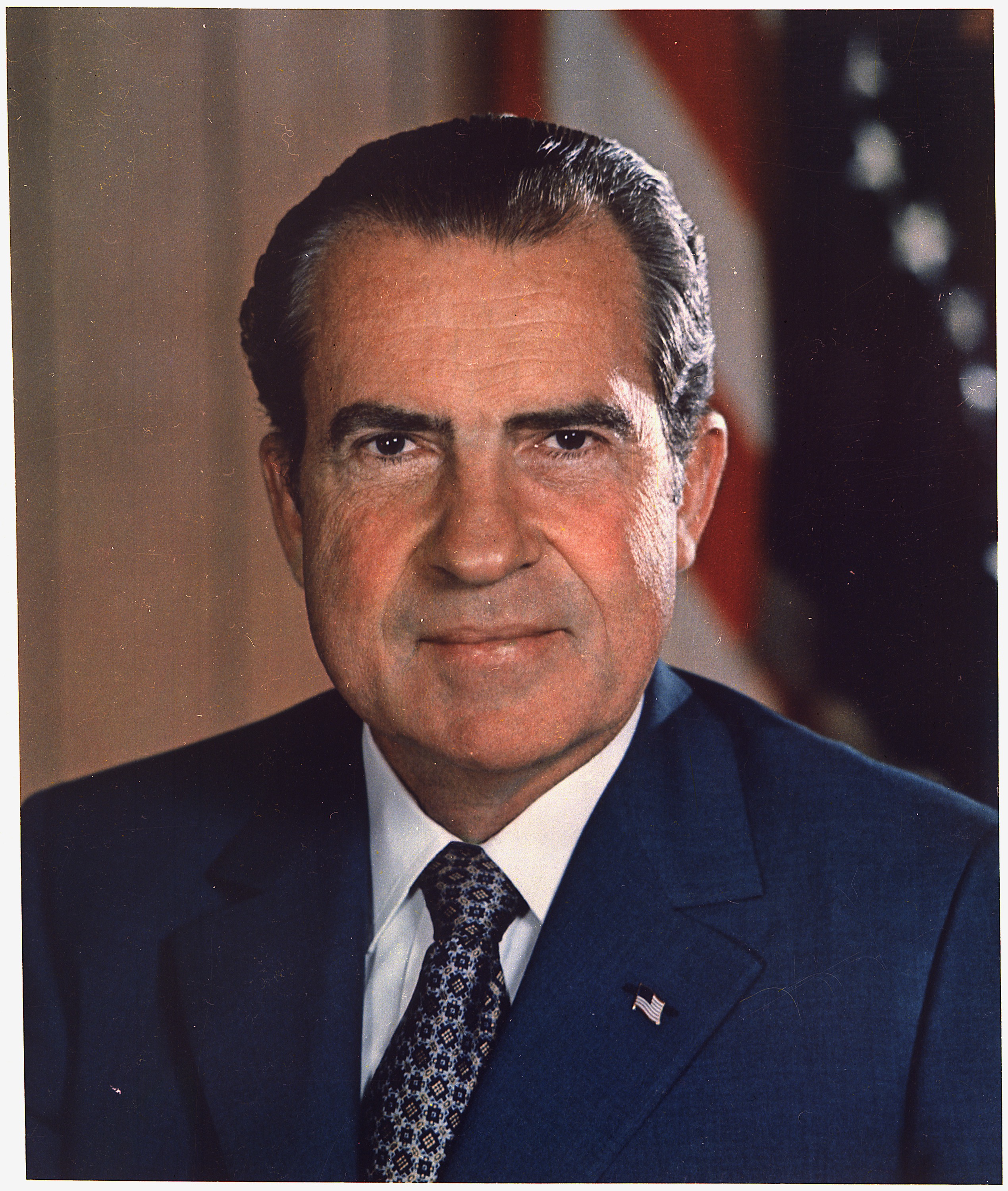Nixon, Haldeman, and Ronald Ziegler, 2:42-3:33 P.M. Oval Office Conversation #524-7; cassette #775 (17 June 1971)
1970s
Richard Nixon: Citations en anglais
1970s, Tape transcripts (1971)
Foreign Relations, 1969-1976, Volume XI, South Asia Crisis, 1971, https://2001-2009.state.gov/r/pa/ho/frus/nixon/xi/45650.htm,and The Blood Telegram: Nixon, Kissinger, and a Forgotten Genocide by Gary J. Bass
1970s
Press conference after losing the election for Governor of California (November 7, 1962) http://www.youtube.com/watch?v=_RMSb-tS_OM; most reports used an official "Transcript of Nixon's News Conference on His Defeat by Brown in Race for Governor of California", as published in "The New York Times" (November 8, 1962), p. 18, also used in RN : The Memoirs of Richard Nixon (1978) and most published accounts which ended "You don't have Nixon to kick around any more because, gentlemen, this is my last press conference and it will be one in which I have welcomed the opportunity to test wits with you."
1960s
The 'smoking gun tape' on (23 June 1972)
1970s
Labor Day Message to the nation http://www.presidency.ucsb.edu/ws/index.php?pid=3557 (3 September 1972)
1970s
As quoted in The Ends of Power (1978) by Robert Haldeman p. 83
1970s
Statement (26 May 1971) as quoted in Newsweek (27 May 2004) http://web.archive.org/web/20060614124156/http://www.msnbc.msn.com/id/5079259/site/newsweek/
1970s
1970s, First Watergate Speech (1973)
“I can't ever say that, but I believe it.”
Responding to Rev. Billy Graham's assertion that the Jews have a "stranglehold" on the media that "has to be broken or the country's going down the drain." Quoted in The New Yorker (15 April 2002) https://archive.is/20130630000743/www.newyorker.com/shouts/content/articles/020415sh_shouts1
2000s
1970s, They're Born That Way (1971)
1970s, Remarks on Being Reelected (1972)
“The Jews are irreligious, atheistic, immoral bunch of bastards.”
Nixon to Bob Haldeman (1 February 1972) as quoted in Counterpunch (12 March 2002) http://www.counterpunch.org/alexgraham.html
1970s
National Review (19 November 2001) http://www.findarticles.com/p/articles/mi_m1282/is_22_53/ai_79665375/pg_2
2000s
I've earned everything I've got.
Televised press conference with 400 Associated Press Managing Editors at Walt Disney World, Florida. (17 November 1973)
Often transcribed as "I am not a crook."
'I Am Not A Crook': How A Phrase Got A Life Of Its Own http://www.npr.org/templates/story/story.php?storyId=245830047, on National Public Radio
1970s
Notes taken down by CIA director Richard Helms on Nixon's orders for a plan against Salvador Allende of Chile. (15 September 1970); Document reproduced as part of George Washington University's National Security Archive. http://www.gwu.edu/~nsarchiv/NSAEBB/NSAEBB8/ch26-01.htm
1970s
Conversation with Mr. Colson, on tapes recorded February-March 1973 http://graphics8.nytimes.com/packages/flash/national/20101211_NIXON_AUDIO/3_VIETNAM.mp3; as quoted in "In Tapes, Nixon Rails About Jews and Blacks" http://www.nytimes.com/2010/12/11/us/politics/11nixon.html, by Adam Nagourney,New York Times (10 December 2010)
1970s
As quoted in The Rehnquist Choice (2001) by John Dean; also in "Double Dipping at the Waffle House" by Dahlia Lithwick http://slate.msn.com/id/117140/ in Slate (11 October 2001)
2000s
Resignation Speech (8 August 1974)
1970s
1970s, They're Born That Way (1971)
1970s, First Watergate Speech (1973)
Responding to Senator Howard Baker who asked him the question: "What do you know about the Kennedy assassination?" Quoted in Oral History Interview with Don Hewitt (8 October 2002)
2000s
Fall of 1971, conversation with Harvard professor Daniel Patrick Moynihan http://nixontapeaudio.org/chron2/rmn_e010b.mp3; as qtd. in Tim Naftali, “Ronald Reagan’s Long-Hidden Racist Conversation With Richard Nixon” https://www.theatlantic.com/ideas/archive/2019/07/ronald-reagans-racist-conversation-richard-nixon/595102/, The Atlantic, (Jul 30, 2019)
1970s, Tape transcripts (1971)
Source: FRUS, Nixon-Haig telcon, 29 April 1971, p. 99. quoted in Bass, G. J. (2014). The Blood telegram: Nixon, Kissinger, and a forgotten genocide.
“I don't know how they reproduce!.. They are a scavenging people.”
1970s, Tape transcripts (1971)
Source: On Nov. 12, 1971, in the middle of a discussion about India-Pakistan tensions with Henry Kissinger and Secretary of State William P. Rogers, after Rogers mentioned reprimanding Indira Gandhi. Conversation 617-009 https://www.nixonlibrary.gov/white-house-tapes/617/conversation-617-009 of the White House Tapes. Quoted https://www.nytimes.com/2020/09/03/opinion/nixon-racism-india.html The Terrible Cost of Presidential Racism The Terrible Cost of Presidential Racism] (September, 3, 2020) by Gary J. Bass, [[The New York Times
